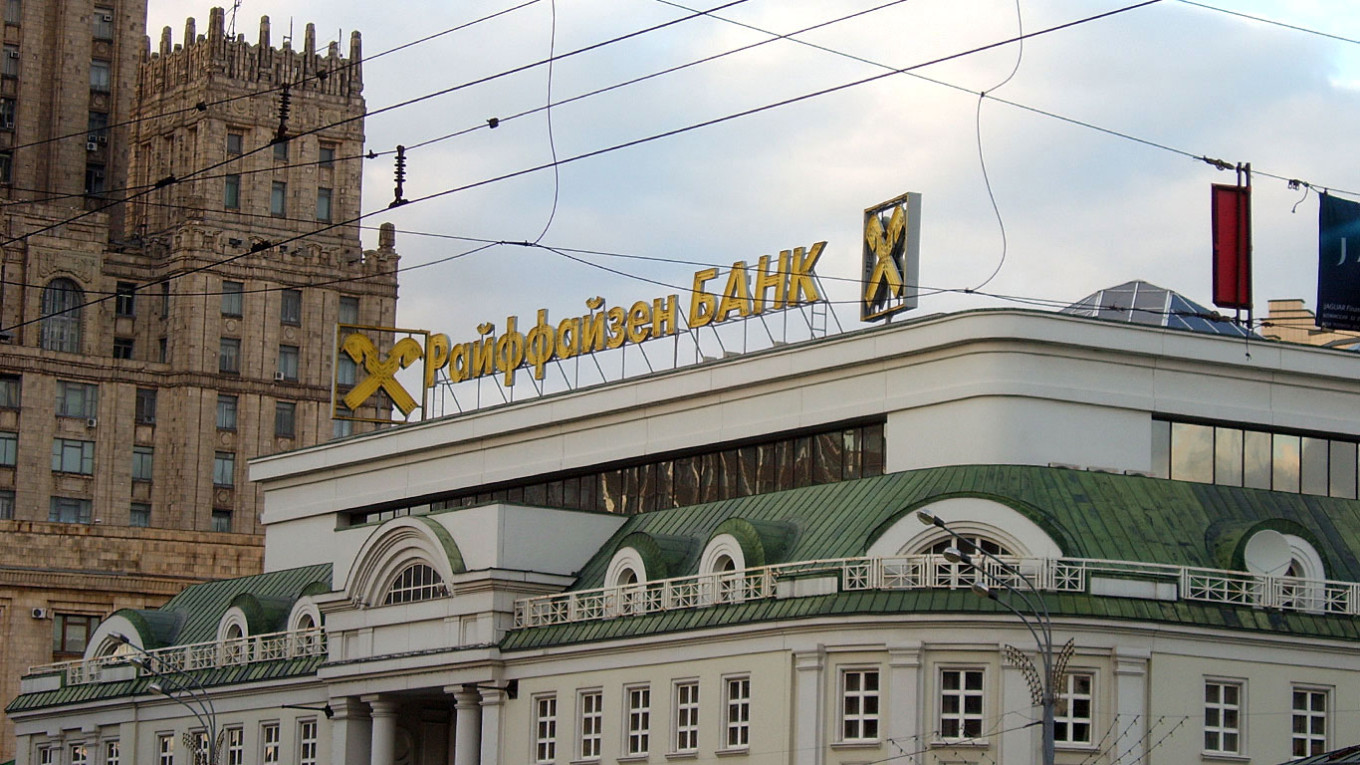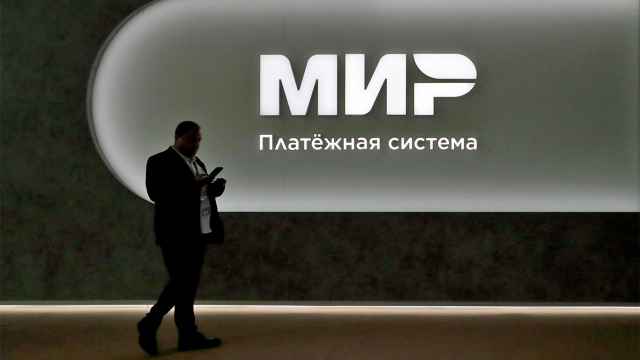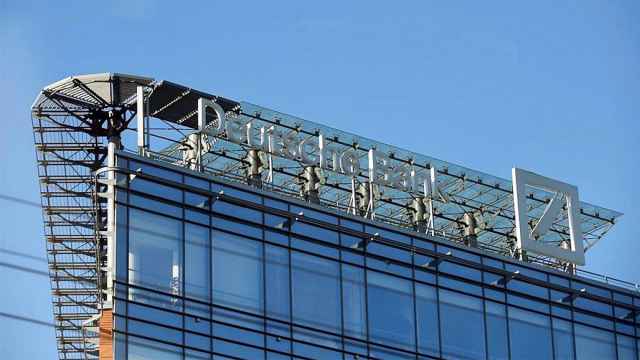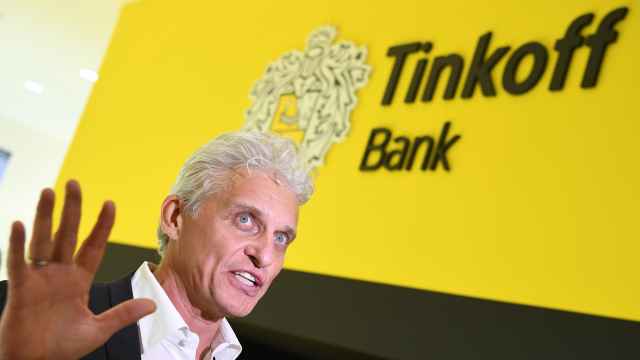Major European banks that continue to do business in Russia paid the government four times more in taxes in 2023 than in the year before Moscow launched its full-scale invasion of Ukraine, the Financial Times reported.
The seven lenders — Austria’s Raiffeisen, Italy’s UniCredit and Intesa Sanpaolo, the Netherlands’ ING, Germany’s Commerzbank and Deutsche Bank, as well as Hungary’s OTP — reportedly paid around 800 million euros ($857 million) in taxes to the Russian state last year.
In 2021, those same banks paid 200 million euros in taxes, according to FT.
At the same time, the seven banks reported a combined profit of more than 3 billion euros last year, though part of these funds cannot be withdrawn from Russia due to wartime restrictions on dividend payouts. It is because of this increase in profitability that the seven banks paid more in Russian taxes in 2023, according to an analysis by FT.
The amount of taxes paid by the major European banks to the Russian government totals around 0.4% of Russia’s non-energy budget revenues expected in 2024, which highlights the role foreign companies continue to play in propping up Moscow’s financial stability despite Western sanctions and an exodus of foreign companies following the 2022 invasion of Ukraine.
Western sanctions imposed in response to the war, which cut Russian banks off from the Swift international payment system, have increased the appeal of Western lenders among Russian clients who seek to maintain access to the West — but they have also benefited the banks themselves.
For example, Raiffeisen Bank International (RBI) saw its Russian profits more than triple to 1.8 billion euros between 2021 and 2023, a figure that is half of RBI’s total profit. Raiffeisen, which has repeatedly said it plans to exit Russia, also paid an additional 47 million euros in 2023 as a windfall tax imposed by the Kremlin on some companies, according to FT.
FT said its report did not include U.S. banks like Citigroup or JPMorgan as they “do not report comparable Russian results on the group accounts used” for its calculations.
Citigroup paid Russia $53 million in taxes last year, while JPMorgan paid $6.8 million, according to calculations by the Kyiv School of Economics.
A Message from The Moscow Times:
Dear readers,
We are facing unprecedented challenges. Russia's Prosecutor General's Office has designated The Moscow Times as an "undesirable" organization, criminalizing our work and putting our staff at risk of prosecution. This follows our earlier unjust labeling as a "foreign agent."
These actions are direct attempts to silence independent journalism in Russia. The authorities claim our work "discredits the decisions of the Russian leadership." We see things differently: we strive to provide accurate, unbiased reporting on Russia.
We, the journalists of The Moscow Times, refuse to be silenced. But to continue our work, we need your help.
Your support, no matter how small, makes a world of difference. If you can, please support us monthly starting from just $2. It's quick to set up, and every contribution makes a significant impact.
By supporting The Moscow Times, you're defending open, independent journalism in the face of repression. Thank you for standing with us.
Remind me later.






